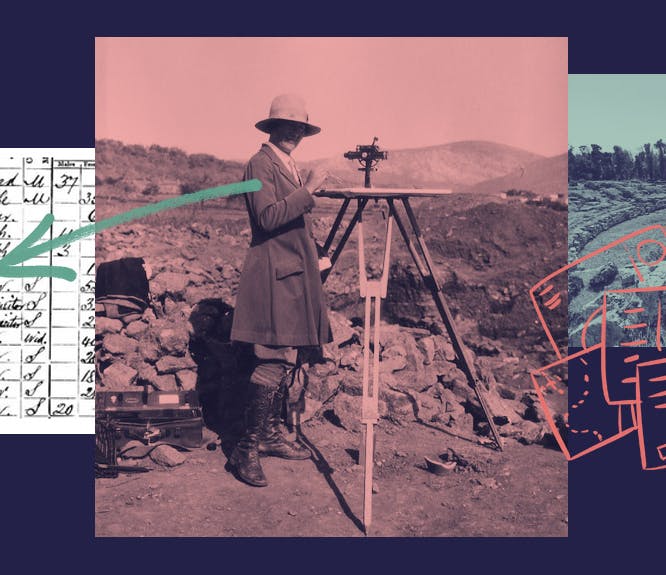This harrowing slavery story left me determined to be my ancestors' voice
4-5 minute read
By Guest Author | May 2, 2023
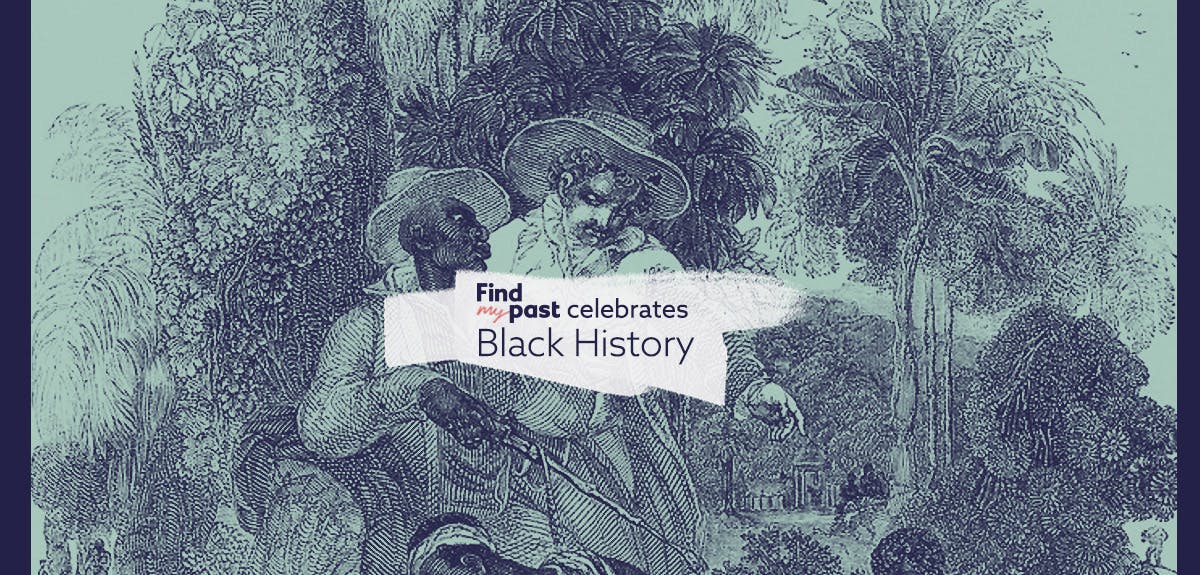
Roosje was a pregnant slave who was whipped so badly, she miscarried. Pooran Bridgelal shares her traumatic story and explains how it changed his perspective on family history.
I grew up in a small village in the southern part of Trinidad called Retrench Estate. This was a sugar-cane estate and had been in existence for over 200 years. In the early 1830s, up to 120 enslaved Africans were recorded as living on the estate. After emancipation in 1838, the freed Africans moved away and then Portuguese and Chinese labourers were brought in to work the estate.
In 1845, when East Indian indentured labourers were introduced in Trinidad, my ancestors were assigned to work in the Retrench Estate.
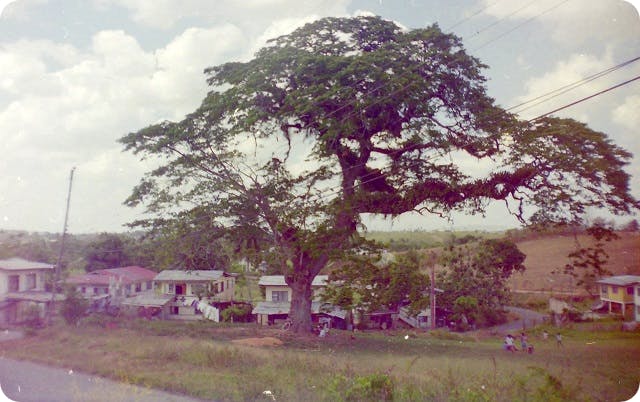
Retrench Estate, Trinidad.
It took me several years to find all of this information and I am still putting my family tree together. For me, discovering all of this was quite a journey and it also helped me to understand the history of the land on which I grew up. Being able to share this story has empowered me to help others discover and share their own family stories. I count this a privilege to be the voice for others who cannot share their stories. I have been researching my family history for over 29 years. I have come to understand that there are no coincidences when you stumble upon documents or when books literally jump off the shelves onto your lap while browsing thrift stores. Such is the case of Roosje or Rosa as she is also known.
The Story of Roosje
Roosje was about 30 years old and lived in Berbice, British Guiana in 1819. The Berbice landscape at the time was scattered with plantations populated by enslaved Africans.
Roosje was enslaved to the L’Esperance Coffee estate located on the east bank of the River Berbice. The estate was owned by the deceased J.W. Heytmeyer (1817) and the administration was now under Hendrik Staal who was one of the trustees. L’Esperance estate had 165 enslaved Africans allotted to various tasks. There were carpenters, field workers, a stock keeper, a basket maker, a sick nurse, one watchman and two drivers. Roosje was a field worker who picked and sorted the coffee beans.
Roosje was born around 1789 in Berbice and we have to assume she had lived her entire life attached to the L’Esperance estate. She had two sisters, Claritje, aged 45 and Ariaantje, 32. Roosje lived with her husband George who was the cook on the estate. George was born in Africa and was 36 years old.
In 1819 Roosje was pregnant with her eighth child. Unfortunately, we don’t know if any of her children were alive at the time, or were sold to another estate. She was five months pregnant and was expected to still carry on with her daily tasks on the coffee estate. One Friday morning, a life-changing incident occurred when she went out to pick and sort the coffee beans.
Roosje told the manager that she could not bend down and pick the coffee beans because she was too big to stoop. The manager told her to do it on her knees and she obeyed his orders. At 11 am that morning their work was examined and seeing that she was not working as she should, the slave driver Zondag reported this and also told the manager that Roosje was;
""too big with child to work.""
The manager replied;
""Give it to her till the blood flies out.""
Roosje was flogged until the whip broke and then flogged again with the carracarras (bush rope). The next day, when she went to the fields to work, she started getting pains in her stomach. She told Zondag who directed her to the manager. The manager sent her to the slave hospital where the doctor examined her and told her nothing was wrong and she should not be sitting down.
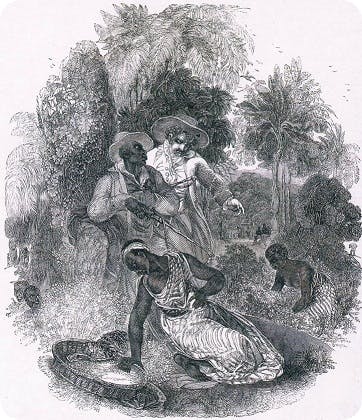
A depiction of Roosje working in the fields of Berbice.
Roosje returned to the fields later that day to help another worker. On Sunday evening, the midwife, Marianna, came to examine her. Roosje miscarried. When the midwife took the baby out they saw it was a boy. His arm was broken, one eye was out and a visible stripe was seen over his head. Roosjes’ sisters Ariaantje and Claritje came and saw the deceased baby boy and then Marianna buried him.
When I first discovered the story of Roosje, I was moved to tears. I just couldn’t understand the violence and loss inflicted upon Roosje. It was then I decided that I needed to always tell her story. We will never hear her voice recalling her pain, anguish and loss but her story will now be told to those who are willing to listen.
I believe this is what genealogy is all about, you and I being the voice of our ancestors.
Some of us will discover that our ancestors participated in the slave trade. We will even find distant relatives who are of African descent. But how we choose to handle this is the choice we have to make. Acknowledging the past actions of our ancestors will help move us forward. Our ancestors’ DNA may be running in our veins but the decisions that they made in the past does not have to determine who we are as individuals.
In September 2019 while I was preparing to attend RootsTech UK, I found this quote. Unfortunately, the author is unknown.
"“From beyond the boundaries of time I have returned to collect my people, they are to be known to me, I will collect them swiftly and they alone know my voice. Not one of them shall be left behind.”"
The path to discovering your African ancestral roots is waiting to be travelled. The only question is, where will it take you?
More Black history resources
- Mary Seacole - The Wonderful Adventures of Mrs Seacole in Many Lands
- Mary Prince - The History of Mary Prince, a West Indian Slave
- Chronological List of Early Slave Narratives
- Legacies of British Slave-ownership
About the author
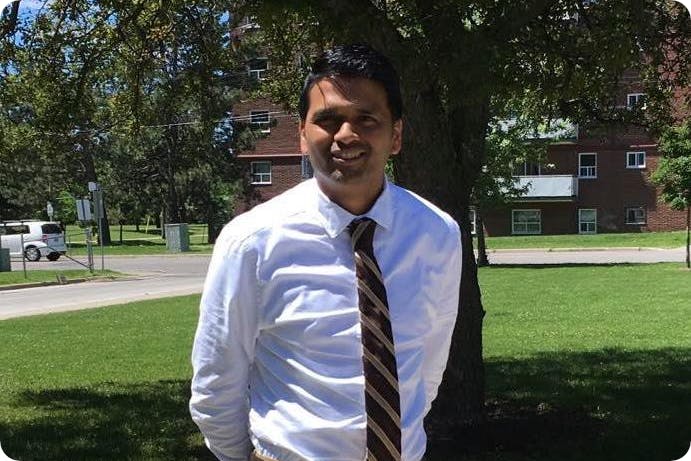
Pooran R. Bridgelal is a Trinidadian born genealogist, researcher, author and speaker residing in Toronto, Canada. He graduated from the University of Toronto with a B.A. (Hons.) in Caribbean Studies, Religion and Aboriginal Studies. Pooran has spearheaded several genealogy lectures in the UK, Toronto and the West Indies. His lectures focus on teaching West Indians how to trace their ancestry. Specifically, he researches the ancestry of West Indians who are of African, East Indian and Chinese descent. His research has also included helping West Indians understand the history of the Slave Registers and interpreting the East Indian Indentured records. Pooran is an avid collector of Westindiana; this includes rare books, antique maps and ephemera.
Related articles recommended for you
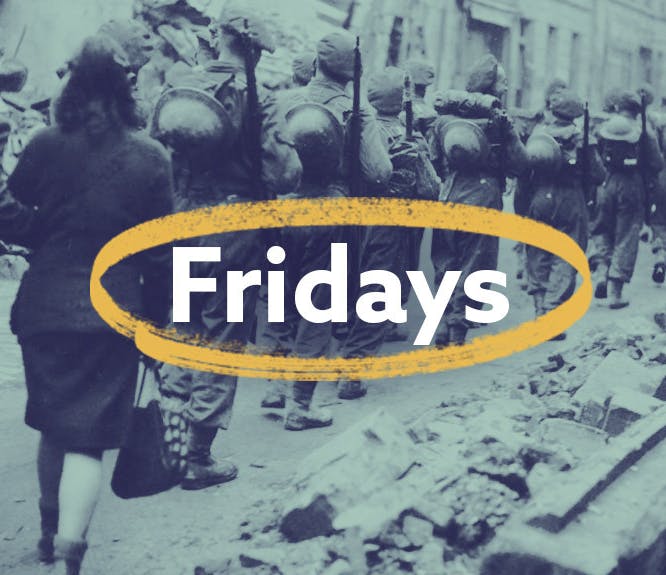
Discover Warwickshire during World War Two
What's New?
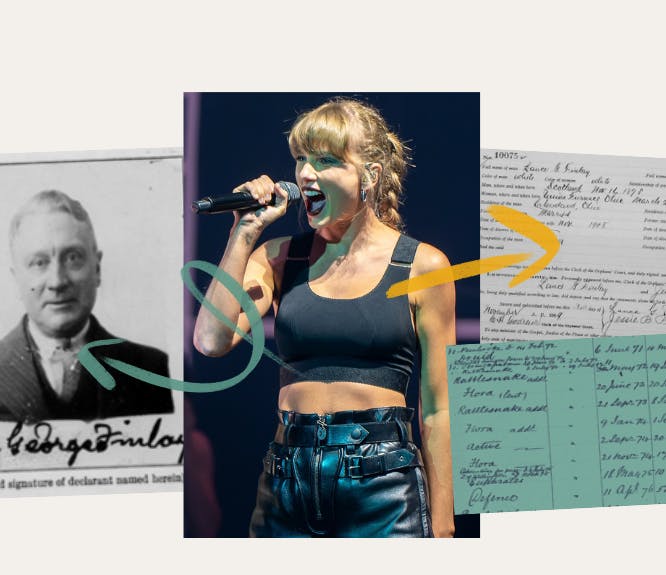
Taylor Swift’s family tree shines with love, heartbreak and the triumph of the human spirit
Discoveries
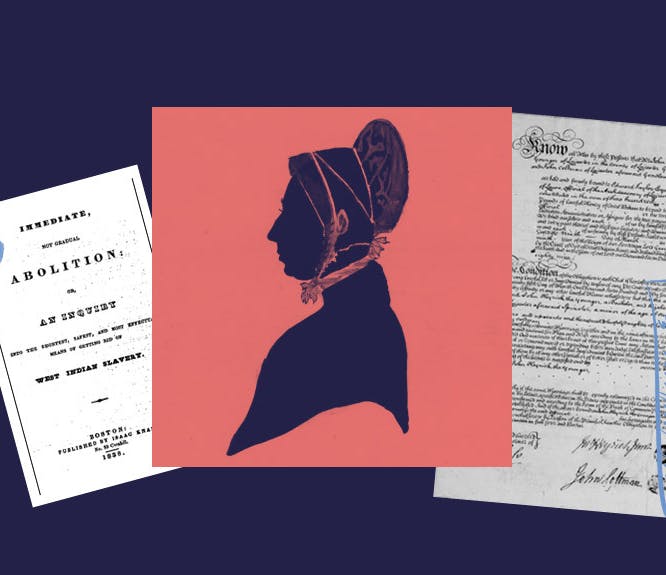
Inspirational women from history: slavery abolitionist Elizabeth Heyrick
History Hub
